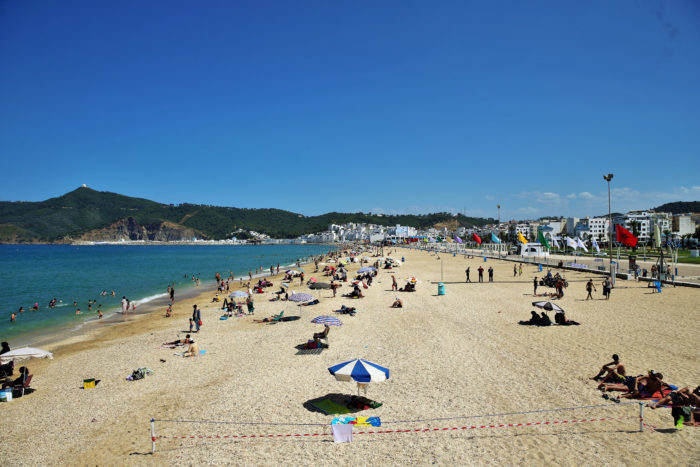Every summer, Moroccans struggle to find affordable travel options within the Kingdom. Due to the scarcity of quality accommodations and the high prices charged by hoteliers and other tourism establishments, planning vacations quickly becomes a headache for citizens. As a result, in 2023, nearly one million Moroccans chose to travel abroad, according to a report prepared by the temporary thematic working group responsible for preparing the annual public policy evaluation session in the tourism sector, which was presented last week to the Chamber of Councillors.
However, according to the Minister of Tourism, Handicrafts, and Social and Solidarity Economy, Fatim-Zahra Ammor, “domestic tourism is a major priority” for her department, and this is “for several reasons.” “Firstly, the growth potential is considerable. Between 2010 and 2023, domestic overnight stays increased from 4 million to 8.6 million. Currently, they account for 33% of total overnight stays, reflecting a real democratization of leisure travel,” the minister explained to TelQuel.
“Secondly, domestic tourism plays a crucial role in the national economy, as it stimulates local businesses, job creation, and infrastructure improvements,” she continued.
Two Paths for Moroccans
With a budget of 6.1 billion dirhams over four years, the 2023-2026 roadmap led by Fatim-Zahra Ammor aims to attract 17.5 million tourists, achieve 120 billion dirhams in foreign currency revenue, and create 200,000 new direct and indirect jobs by 2026, thereby “repositioning tourism as a key sector in the national economy.”
To achieve these goals, the ministry plans to implement a “new approach” to tourism offerings, which will be structured around nine thematic sectors. Among these, two are “specifically dedicated to domestic tourism,” the minister indicates. These are the “Seaside” and “Nature and Discovery” sectors, while “Moroccan tourists will, of course, benefit from all nine sectors of the roadmap,” emphasizes Fatim-Zahra Ammor.

Additionally, to develop domestic tourism and tailor it to the needs of Moroccans, four main projects are currently underway, she assures. Some are related to regulations and others to promotion. The first project involves diversifying tourism products. “Beyond seaside tourism, we are targeting nature tourism, city breaks, and cultural tourism, which will help expand the tourism offering and extend it throughout the year, not just during the summer,” the minister details.
“More Accessible Options”
The second project aims to expand the accommodation offering: “We are accelerating the adoption of implementing regulations for Law 80-14 to include new forms of accommodation, such as unusual lodging, homestays, or alternative lodging. The goal is to offer more accessible options that are suitable for Moroccan families. These regulations also place great importance on quality, comfort, and safety for tourists,” the official emphasizes.
Next is the “targeted promotion” of tourist destinations for Moroccan citizens through the campaign “Netla9aw f Bladna” (Let’s Meet in Our Country), which has been recycled for this summer in collaboration with the Moroccan National Tourist Office (ONMT). According to the minister, the goal is to “highlight experiences to be enjoyed in groups, with family, or with friends throughout Morocco.”
Finally, Fatim-Zahra Ammor wants to focus on “multi-stakeholder collaboration, working hand-in-hand with industry professionals, local authorities, and other government departments.”
Regarding the high prices charged by tourism professionals in Morocco, which, according to the parliamentary report, constitute a “real obstacle for middle-class families,” these are related to “an imbalance between supply and demand during peak seasons like summer and in coastal regions.” The minister assures that “the ongoing projects should lead to the emergence of new accommodation options and the creation of several units, which will restore balance between supply and demand and stabilize prices.”
Written by Ghita Ismaili, edited in English by Eric Nielson




